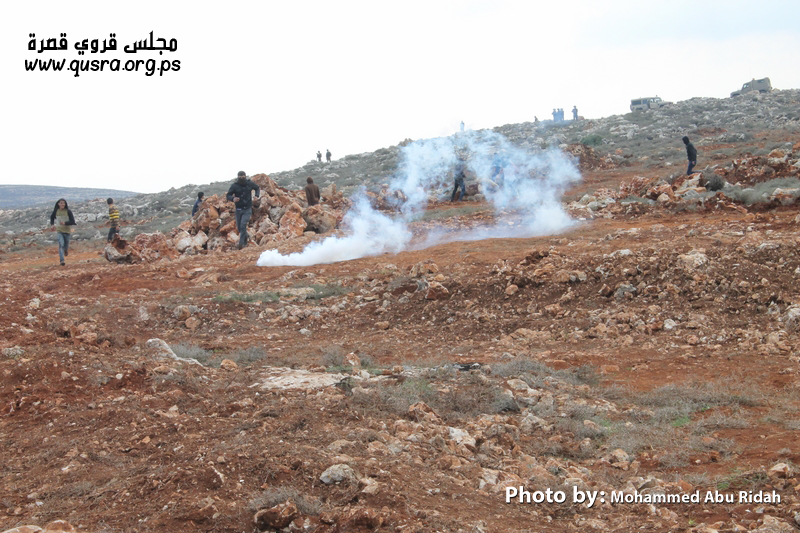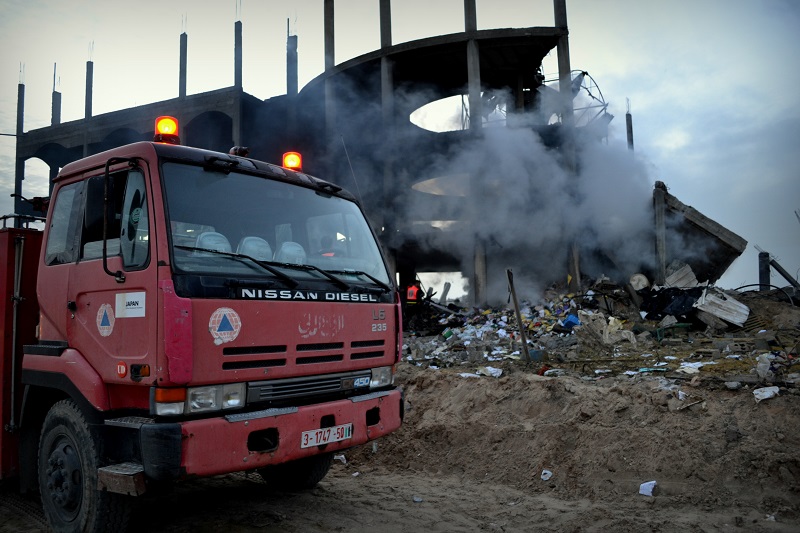Category: Reports
-
Israeli gunfire and tear gas injure five Palestinians at a protest north of Gaza
10th February 2014 | International Solidarity Movement, Rosa Schiano | Gaza, Occupied Palestine On Friday, 7th February, hundreds of Palestinian youth joined a weekly demonstration of popular resistance along the separation barrier east of Jabaliya, in the northern Gaza Strip. Aware of attacks by the Israeli army, many were equipped with onions, water and yeast to relieve…
-
Military repression following a settler attack in Qusra
7th January 2014 | International Solidarity Movement, Nablus Team | Qusra, Nablus District, Occupied Palestine On the 7th of January in Qusra, two farmers working on their land were threatened by settlers carrying guns. Villagers helped them to chase the invaders away before being violently repressed by the army. On Friday, at 10:30 a.m., two…



